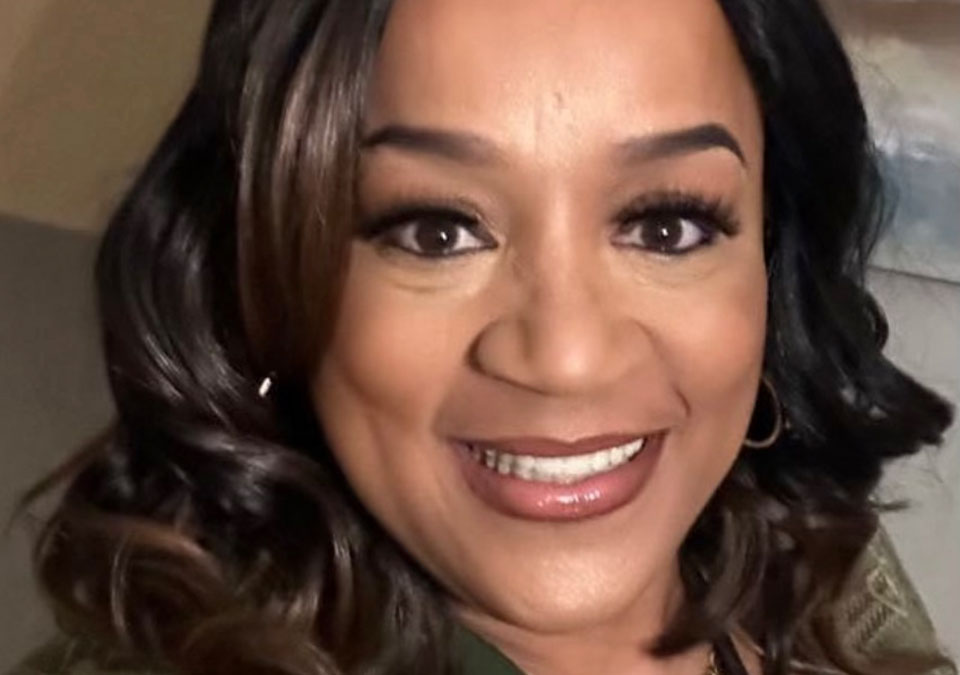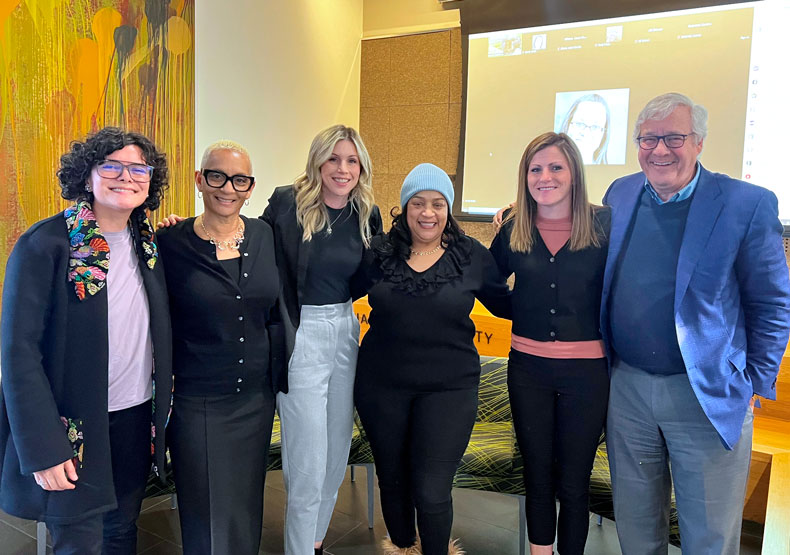Human Trafficking Research Hub (HTRH)
Human Trafficking Research Hub
A Community of Scholars, Clinicians, and Survivors
The question about the role of coercive bonding in experiences of human trafficking was the initial inquiry that led to the founding of the HTRH. The pursuit of this research question since 2017 taught the HTRH team that relationships are key to human trafficking entry, exit, prevention, and the treatment of its consequences.
The HTRH team is continuing to study the coercive mechanisms that entrap people in human trafficking. Equally, the consequences of traffickers’ coercion, the treatments that can address those consequences, and the quality and type of relationships that can prevent and disrupt human trafficking and help heal its impact are also a focus of our research.
At the HTRH, we believe that the pursuit of our research is best done in an environment that develops the science about human trafficking in relation to personal, professional, and community development goals.
We are proud to announce our inaugural paper on the roles of attachment patterns and trauma-coerced bonding in the stages of survivors’ experiences of commercial sex. Available online here.
At a Personal Level
All our team members have a vested interest in the issue of human trafficking. To learn more about what brought each HTRH member to this work, take a look at our bios.
At a Professional Level
Students and others interested in developing their knowledge and ability to research human trafficking will find an environment in the HTRH where they can contribute to and grow with the team. To read about the philosophy of the HTRH, we invite you to take a look at an article written by John Minahan, PhD.
At a Community Level
The HTRH aims to address the mental health and psychological consequences of human trafficking through research methods that prioritize collaboration with community partners. This includes utilizing approaches such as participatory action research (PAR), consensual qualitative research (CQR), and theories of liberation psychology to ensure that survivors and local organizations actively shape research questions, interpret findings, and develop interventions. To read about HTRH’s partnership with communities, we invite you to take a look at an article written by Stacy Reed-Barnes, PsyD.
Refereed Journals
Contreras, P. M., Wilson, N., Joseph, A., Valentine, S., Minahan, J., Reed-Barnes, S., Wightman, H., Dockery, J., Stahl, J., Kallivayalil, D., Kirsch, N., Waterman, B., Wilson, S., Greenberg, R. M., Carter, C., Eid, S., Ayala-Conesa, M. L., Sanchez, A., & Herlihy, L. (2025). The roles of adult attachment and complex trauma in sex trafficking-related coercive bonding: entry, entrapment, and the challenges of exiting. Psychological Trauma: Theory, Research, Practice, and Policy. doi.org/10.1037/tra0001951
Contreras, P. M. (2022). Identifying, attending, and protecting US sex trafficked adults and minors. In R. Geffner, J. W. White, L. K. Hamberger, A. Rosenbaum, V. Vaughan-Eden, & V. I. Vieth (Eds.), Handbook of interpersonal violence and abuse across the lifespan: A project of the National Partnership to End Interpersonal Violence Across the Lifespan (NPEIV) (pp. 3839–3860). Springer Nature Switzerland AG. doi.org/10.1007/978-3-319-89999-2_222
Contreras, P. M. (2019). Psychological treatment: Reflections on a psychoanalytic perspective to work with human trafficking. In M. C. Burke (Ed.), Working with the human trafficking survivor: What counselors, psychologists, social workers and medical professionals need to know (pp. 61–80). Routledge/Taylor & Francis Group. doi.org/10.4324/9781315684468-5
Contreras, P. M. (2018). Human trafficking of women and girls in the United States: Toward an evolving psychosocial-historical definition. In C. B. Travis, J. W. White, A. Rutherford, W. S. Williams, S. L. Cook, K. F. Wyche, ... K. F. Wyche (Eds.), APA handbook of the psychology of women: Perspectives on women's private and public lives (pp. 175-193). Washington, DC, US: American Psychological Association. doi:10.1037/0000060-010
Contreras, P. M., Kallivayalil, D., and Herman, J. L. (2017). Psychotherapy in the aftermath of human trafficking: Working through the consequences of psychological coercion. Women and Therapy, 40(1-2), 31-54. doi:10.1080/02703149.2016.1205908
White Papers and Other Publications
American Psychological Association. 2017. Resolution on Human Trafficking in the United States, Especially of Women and Girls. Washington, DC: American Psychological Association. Retrieved from: www.apa.org/about/policy/trafficking-women-girls.
Contreras, P.M. (2015, January 26). How Psychologists are Working to Eradicate Human Trafficking. Psychology Benefits Society, American Psychological Association: Washington, D.C. Available at psychologybenefits.org/2015/01/26/how-psychologists-are-working-to-eradicate-human-trafficking/
Minahan, J. (2025). Reflections of a Team Member on a Study of Commercial Sex and Sex Trafficking: An Organizational Psychology Perspective. Available online here.
Reed-Barnes, S. (2023). Survivors and Allies Working Together to Bridge the Commercial Sex and Sex Trafficking Research Gaps. Available online here.
Task Force on Trafficking of Women and Girls. (2014). Report of the Task Force on Trafficking of Women and Girls. Washington, DC: American Psychological Association. Retrieved from www.apa.org/pi/women/programs/trafficking/report.aspx
Wightman, Contreras, Lemos, & Back (2015). The Supply Side of the On-Line Commercial Sex Market in Massachusetts: A Data Mining Study. Available online here.
Bryant-Davis, T. & Contreras, P.M. (2012). The Psychology of Human Trafficking. Documentary developed by the American Psychological Association’s Society for the Psychology of Women, available at vimeo.com/30360676
HTRH Conference Presentations
Contreras, P., Wilson, N., Joseph, A., Valentine, S., Minahan, J., Reed-Barnes, S. (October 26, 2024). The role of adult attachment and complex trauma in sex trafficking coercive bonding, entry, entrapment, and initial exit. Panel Presentation, New England Psychological Association Conference, Springfield College, Springfield, MA.
Contreras, P. (April 22, 2024). Human Trafficking: Evaluation and Treatment Considerations. Presentation at the Global Health and Human Rights Speakers Series at Cambridge Health Alliance/Harvard Medical School, Online, Cambridge, MA.
Human Trafficking Awareness Month at the HTRH (January 22, 2024), A Panel Presentation with Providers Working with Survivors of Human Trafficking. William James College, Newton, MA.
Contreras, P., Minahan, J. & Joseph, A. (March, 2023). Attachment Patterns and Other Complicating/Facilitating Factors to Exit Commercial Sex. Alumni CE Presentation, William James College, Newton, MA.
Contreras, P. (January, 2020). Human Trafficking Facts and Research at the Human Trafficking Community Research Hub. Brown Bag Student Lunch at William James College, Newton, MA.
Dissertation Colloquiums
Reed-Barnes, S. (January 6, 2025). Listen to Survivors: Identifying Gaps, Challenges, and Best Practices, Providing Quality Care and Support to Survivors of Human Trafficking and Commercial Sexual Exploitation with Substance Use Disorders. Doctoral Project Colloquium presented to partially fulfill the requirements for Doctorate in Leadership Psychology, William James College, Newton, MA.
Canas, Katherine, Exploring the impact of sex tourism on sex trafficking in Medellín, Colombia: The perspective of victim-centered providers. This dissertation has been approved by the William James College IRB, completed data collection in Medellin, Colombia, and is in the data analysis phase. For more information, please contact katherine_canas@williamjames.edu
De Jesus, Lishleynny, A Consensual Qualitative Secondary Analysis on Role Transition in Victims of Human Trafficking. This dissertation is under IRB review. For more information, please contact lishleynny_dejesus@williamjames.edu
Duarte, Caterina, The Impact of Experiences of Childhood Sex Trafficking on Adult Romantic Relationships: A Memoir Analysis. This dissertation has been approved by the William James College IRB, and in the data collection phase. For more information, please contact caterina_duarte@williamjames.edu

Survivors and Allies Working Together to Bridge the Commercial Sex and Sex Trafficking Research Gaps
By Stacy Reed, MSW, William James College Leadership Psychology PsyD Student
The HTCRH is completing a unique mixed method study that asked 50 participants diverse by race, ethnicity, gender, and sexual orientation to complete Adult Attachment Interviews (AAI), multiple objective measures about people's well-being and mental health struggles, and a qualitative interview about their life experiences in commercial sex.
READ ABOUT THE STUDY
William James College's HTRH Convenes Community Conversation During Human Trafficking Awareness Month
On January 22, 2024, a lunchtime Q&A convened on campus with a panel of frontline experts hosted by the Counseling and Behavioral Health Department and the Human Trafficking Community Research Hub (HTCRH), moderated by Paola M. Contreras, PsyD, Associate Professor, Counseling and Behavioral Health Department.
READ More HERE